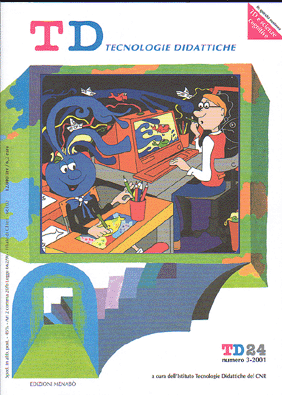Media, communication and learning: a review of relations between word, image and action
Main Article Content
Abstract
Article Details
Section
Authors who publish with this journal agree to the following terms:
- Authors retain copyright and grant the journal right of first publication with the work simultaneously licensed under a Creative Commons CC BY 4.0 Attribution 4.0 International License.
- Authors are able to enter into separate, additional contractual arrangements for the non-exclusive distribution of the journal's published version of the work (e.g., post it to an institutional repository or publish it in a book), with an acknowledgement of its initial publication in this journal.
- Authors are permitted and encouraged to post their work online (e.g., in institutional repositories or on their website) prior to and during the submission process, as it can lead to productive exchanges, as well as earlier and greater citation of published work (See The Effect of Open Access)
References
Austin J. L., (1987), Come fare cose con le parole, Marietti, Genova.
De Michelis G. (1993), Comunicazione e organizzazione, in Le scienze e le tecnologie: ieri, oggi, domani, vol. “Le scienze della comunicazione”, FR Grandi Opere, Milano.
Glasersfeld E. von (1986), Steps in the Construction of ‘Others’ and ‘Reality’: A Study in Selfregulation, in R. Trappl (ed) Power, Autonomy, Utopia. New Approaches toward Complex Systems, Plenum Press, New York, pp. 107-16.
Glasersfeld E. von (1998), Il costruttivismo radicale. Una via per conoscere ed apprendere, Società Stampa Sportiva, Roma.
Lo Piparo F. (2000), I sensi, le immagini, il linguaggio e la rivoluzione conservatrice dell’informatica, Sistemi Intelligenti, anno XII, n. 3, pp. 495-500.
Manca S., Sarti L. (2001), Il rapporto tra comunità virtuale e apprendimento, in Biolghini D. e Cengarle M. (eds) Net Learning 2, ETAS RCS, Milano (in stampa)
Maturana H., Varela F. J. (1985), Autopoiesi e cognizione, Marsilio, Venezia.
Minsky M. (1974), A Framework for Representing Knowledge, Artificial Intelligence Memo 306, MIT AI Lab.
Parisi D. (2000a), Scuola@. it. Come il computer cambierà il modo di studiare dei nostri figli, Mondadori, Milano.
Parisi D. (2000b), Nota su un libro di Raffaele Simone, Sistemi Intelligenti, anno XII, n. 3, pp. 483-485.
Parisi D. (2001a), Simulazioni. La realtà rifatta nel computer, Il Mulino, Bologna.
Parisi D. (2001b), Le simulazioni e la storia, TD - Tecnologie Didattiche, n. 24, 2001, pp. 27-32.
Pellerey M. (1998), Limiti e opportunità della multimedialità, Informatica e Scuola, anno VI, n. 4.
Searle J. R. (1976), Atti linguistici. Saggio di filosofia del linguaggio, Bollati Boringhieri, Torino.
Simone R. (2000a), La terza fase. Forme di sapere che stiamo perdendo, Laterza, Roma-Bari. Simone R. (2000b), Risposta a Parisi, Sistemi Intelligenti, anno XII, n.3, pp. 487-493.
Tagliagambe S. (2001), La multimedialità e l’integrazione linguistica, in Atti del convegno TED, Genova, 12-14 febbraio 2001, pp. 213-219.
Wenger E. (1998), Communities of practice. Learning, meaning, and identity, Cambridge University Press, Cambridge, UK.
Wittgenstein L. (1967), Ricerche filosofiche, Einaudi, Torino.

